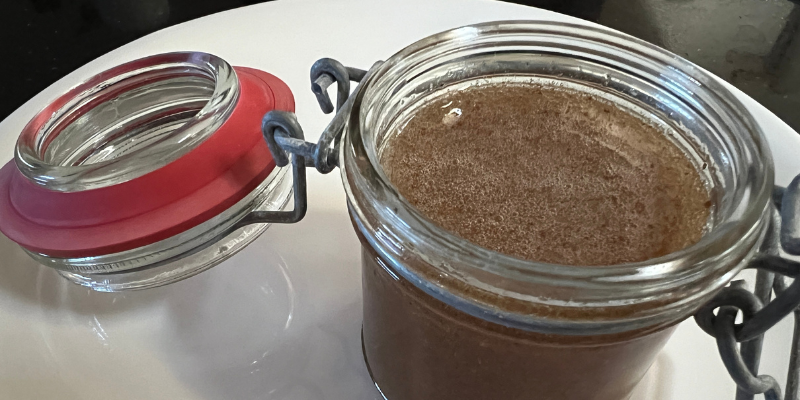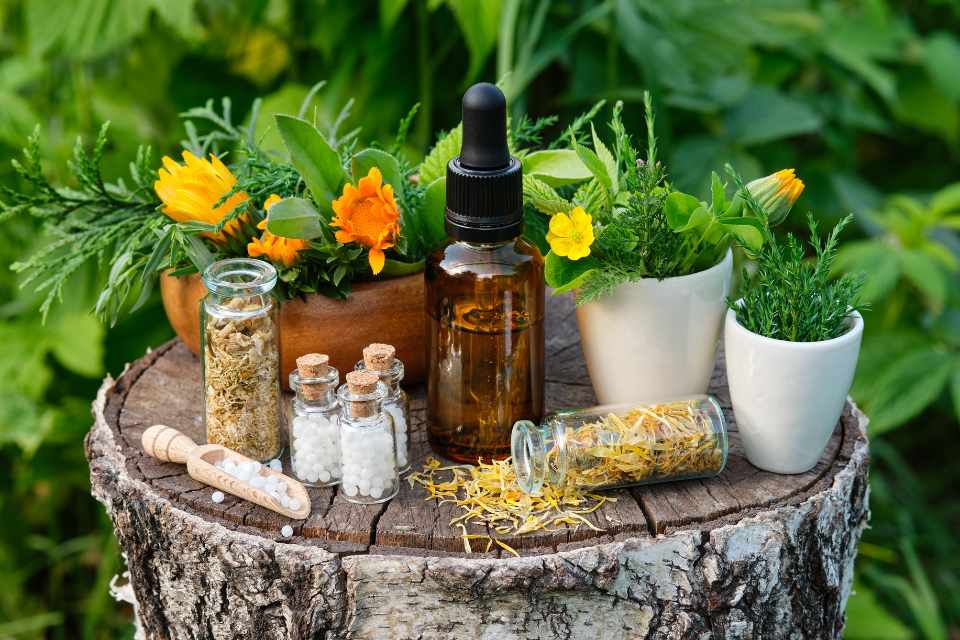Urinary tract infections (UTIs) are very common, especially infections in women. In fact, 50 times more women than men have UTIs. And about half of UK women will have at least one urinary tract infection in their lifetime. Many will use antibiotics to help kill their infection but these pharmaceuticals do nothing to help prevent recurrence. But, natural remedies don’t just fight bacteria; they also help to prevent the infection recurring.
Understanding the many different ways a holistic approach can help, will be key when it comes to managing a UTI. It’s not just about tackling the symptoms but also adopting preventive measures that can keep those nasty infections at bay. From hydration to hygiene and diet, there are simple lifestyle tweaks that can make a real difference.
In this article, I also discuss several traditional herbal remedies for urethritis and UTIs that are straightforward and easy to incorporate into your day. With a consistent routine, you can not only combat a current infection, you can help to prevent future episodes.
Symptoms of a urinary tract infection
The most common symptom of a UTI is a burning sensation during urination. It is also common to have more urgent and frequent urination. In some cases, the frequent need to urinate can result in urinary incontinence. These acute UTI symptoms occur because harmful bacteria infect and irritate the urethra, causing inflammation. An infection of the urethra is called urethritis.
While a course of prescription antibiotics may help to clear up a bacterial infection, the truth is that the harmful bacteria that cause a UTI are becoming resistant to antibiotics. So, a UTI may not clear up completely, and this can result in recurrent infections.
As recurring infections become more common, more people are turning to alternatives such as herbal remedies for UTIs. In my practice, I have seen many a case of uncomplicated UTI clear up with herbal medicine treatment. Especially when a herbal medicine is taken at the first sign of an infection.
How do bacteria cause UTI?
By far the most common bacteria causing a UTI is Escherichia coli (E coli). It causes around 80% of cases in adults.
Bacteria migrate from the gut, colonise the urethra and multiply. They can travel further up the urethra and into the bladder causing a bladder infection. Bladder infections are known as cystitis. Fever or chills may indicate the infection has reached the kidneys. A kidney infection is a serious complication and needs medical attention.
The urinary tract has a glassy smooth lining that serves as a defensive barrier that helps to prevent bacteria sticking to the surface. But, if bacteria can attach to the surface cells they may be able to invade and damage the lining. A damaged lining is easier for even more bacteria to adhere to. And if the numbers of bacteria are sufficient they may form bacterial communities or biofilms. A biofilm protects colonies of bacteria from substances that might otherwise kill them, such as antibiotics.
Damaged lining cells die off and are shed, and this allows even more bacteria to stick to, and invade deeper layers of the lining. Whenever bacteria make biofilms it makes recurrent infection more likely.
To prevent infections recurring, your doctor may suggest long term, low dose antibiotics. But this encourages resistance to develop. Not to mention the havoc that taking permanent antibiotics causes in the gut.
So, if antibiotics are not the answer, you might be wondering how a natural remedy can help. In fact, there are several medicinal herbs with a tradition of use for uncomplicated infections of the urinary tract.
Just be aware that these remedies are not suitable during pregnancy or severe kidney disease. And I do not recommend using herbs for kidney infection.
Maintaining Hydration to Prevent UTIs
It is much harder for women to avoid UTIs because of the shorter length of their urethra. So, women must find effective prevention strategies that work for them. The simple habit of staying hydrated can help to maintain urinary health and prevent infections.
It is commonly recommended to drink at least 8–10 glasses of water daily. This can help to flush out bacteria from your urinary system, and reduce the risk of bacterial growth and subsequent infections.
Instead of drinking plain water you could opt for herbal teas and other fluids that can help to reduce inflammation and combat the bacteria whilst also healing the urinary tract at the same time. More on this later in this article.
Cranberry Juice
The use of cranberry juice and products is a well-known remedy for UTIs. Some recent studies have questioned the effectiveness of cranberries, however, doubt has been cast over the potency of the products used in some of the studies.
Cranberries are effective because they help to prevent the adhesion of harmful bacteria such as E.coli to the urinary tract lining. So that when you have adequate fluid intake the bacteria in your urinary system are flushed out instead of clinging to the sides of the tract. Cranberries also contain substances that make the environment in the urinary tract slightly acidic which is less hospitable for bacteria, further reducing the risk of infection.
This study of cranberry products for preventing UTI suggested a 30-40% decrease in recurring urinary tract infection. The study was unable to provide a conclusive dosage but a small glass of unsweetened cranberry juice per day could be tried.
For women prone to frequent infections, drinking a small amount of unsweetened cranberry juice daily might just provide enough antibacterial activity to prevent recurrences. But it is important to keep in mind that high doses, especially from supplements, are not recommended for breastfeeding or pregnant women, or those with kidney stones, and they might interfere with some medications.
And this is the important part: always choose the unsweetened varieties. Added sugars can actually make those UTIs worse!
If you find it hard to find unsweetened cranberry juice it is easy to make your own.
D-Mannose: A Sugary Solution for Prevention
Cranberries contain a variety of compounds that help to protect against UTIs, including D-mannose. The (-ose) part of D-mannose means this is a type of sugar, but it is not a dietary sugar like sucrose or glucose, so it does not have the same effects as those sugars on the gut.
If you don’t like the tart flavour of cranberries, you can still benefit from the effects of cranberry products, by using products such as D-mannose supplements. Just be aware that D-mannose is only one of the active ingredients, and cranberries have other compounds that may have equally important benefits.
Nevertheless, D-mannose is easily available, convenient and has a relatively long shelf-life, making it a handy option for anyone prone to recurring infections.
Proper Hygiene Practices for UTI Prevention
Proper hygiene is one of the simplest yet most effective ways to prevent urinary tract infection in women . By paying attention to our daily routines, we can significantly reduce the risk of developing these infections.
First and foremost, it’s essential to clean the genital area regularly with mild soap and water. This helps in removing bacteria that might cause infections.
It is a crucial practice after using the toilet, to always make sure to wipe from front to back. This will help to prevent transferring bacteria from the rectum to the urethra.
Another habit to remember is to always urinate after sexual intercourse. Even a few drops of urine after sexual activity can help to clear bacteria from the urinary tract, helping to prevent UTIs in women.
And, its wise to avoid using scented products or harsh chemicals around your sensitive areas. These products can irritate the bladder, increasing the likelihood of an infection.
Avoiding Bladder Irritants: Foods to Skip
When you’re dealing with a UTI, it’s crucial to pay attention to your diet to avoid exacerbating symptoms. Certain foods and drinks, while not causing infections, can irritate an already sensitive bladder, so it’s wise to skip them until you’re feeling better.
Caffeine has diuretic properties and may irritate the bladder, potentially making urination more frequent, increasing discomfort.
Alcohol dehydrates the body which can concentrate the urine and irritate the bladder lining.
Foods such as citrus fruits, tomatoes and vinegar, spicy foods and foods containing artificial sweeteners can all potentially irritate the bladder in some people.
Avoiding these foods and drinks, and any others that you might suspect make your symptoms worse, is a good precaution. Also bear in mind that sugary foods can disrupt your gut microbiome and this in turn can exacerbate UTIs.
Probiotics: Boosting Your Friendly Bacteria
You might think of probiotics for improving gut health. However, these friendly bacteria, play a vital role in keeping our immune system strong as well as our urinary tract in tip-top shape.
While maintaining good hygiene is essential, it is also true that bacteria may still transfer from the rectum to the urethra, contributing to UTIs. Supporting a healthy gut microbiome can minimise the risk of infection and play a role in overall urinary health.
By regularly including probiotic-rich foods like yoghurt, kefir, and fermented vegetables in your diet, you can help maintain the natural balance of bacteria in your gut, as well as potentially reducing the risk of UTIs.
If your diet falls short of these beneficial foods, probiotic supplements offer a handy solution. These supplements can be particularly useful after antibiotic treatment, which often disrupts the delicate balance of gut bacteria.
Lactobacillus species are the most studied probiotic species for UTI prevention. These probiotics are helpful to prevent recurrent infections because they compete with the harmful UTI-causing bacteria. Probiotics also support urinary health by lowering pH and preventing overgrowth of harmful species.
Lactobacillus crispatus can be particularly beneficial for preventing E. coli infections.
Garlic: A Natural Antibacterial
Garlic, is a food staple in many kitchens, and yet it is another remedy that has been a medicine for thousands of years. This potent herb is well known for its strong antibacterial effects, though perhaps it is not so well know for fighting the bacteria that cause UTIs, such as E. coli.
Allicin is a sulphur-containing compound in garlic, and it is renowned for its antimicrobial properties. Make sure you include garlic regularly in your diet for gut and overall health.
Herbal Teas: Soothing Remedies for UTIs
Herbal teas can be a gentle and comforting way to alleviate the discomfort of UTIs. By boosting fluid intake, these teas help flush out infections, providing soothing relief.
Juniper
Juniper (Juniperus communis) is perhaps my first choice for a urinary infection. It is a mild but effective urinary antiseptic. Juniper is also a diuretic herb so it helps to flush out the urinary tract. It is also anti-inflammatory. But, even though Juniper is a traditional herb for a UTI it should not be used during pregnancy. It also should not be taken for longer than 6 weeks at a time. Juniper irritates the kidneys so should not be used if someone has kidney disease. This also includes a history of kidney disease.
Usually, we use juniper berries for medicine. But other parts of the plant, such as the needles are also antiseptic. The berries can be taken as a tincture or even eaten whole. The herbalist Stephen Buhner recommends between 1 and 5 whole berries per day. And, in my experience as a herbalist, I have found this to be a fast and effective treatment method.
Bearberry
Another urinary herb with antiseptic properties is Bearberry (Arctostaphylos uva-ursi), also known as Uva-ursi. This herb forms the antibacterial compound hydroquinone within the urinary system. Though this reaction depends on the urine being alkaline. Once again it is best to limit the use of bearberry. Use bearberry for no more than two weeks at a time. I prefer an infusion of the leaves. Drinking more fluid means there is a greater volume of urine. So a greater fluid intake helps to flush out bacteria from the urethra.
A study found that a combination product including bearberry was a useful therapy for reducing UTI during menopause.
Barberry
There has been a lot of research on the alkaloid berberine, a constituent of several herbs. These include goldenseal (Hydrastis canadensis) and barberry (Berberis vulgaris). Research shows berberine is able to prevent the adhesion of bacteria to the urinary tract.
Perhaps more importantly, berberine containing herbs have a tradition of use for gut infections. Since the bacteria that cause many UTIs, migrate from the gut, the antimicrobial effects against certain gut bacteria may have a direct effect on UTI infections.
Berberine is not very water-soluble so a tincture of the herb is the best form.
Couchgrass
The last herb I want to talk about is couch grass (Elymus repens). This is a common, invasive, grassy weed. So it’s nice to know that it can also be helpful medicinally. The root of this grass is a mild diuretic herb, so it helps to flush the urinary system. It is also anti-inflammatory and so soothes the irritated and inflamed urinary tract. This herbal remedy can be used as a tincture or as a tea.
Thyme leaf
Thyme contains a powerful antibacterial and antifungal essential oil that is excreted partly through the lungs and partly through the urinary tract. Thyme leaf tea made from fresh or dried herb is a urinary antiseptic that can help to disinfect the urinary system.
You can make a herbal tea combination with couch grass root, thyme leaves and uva-ursi leaves to take at the first signs of infection. Brew your herbal tea, in a covered cup or teapot, for 5-20 mins. Have up to three cups per day, and make sure that you are also having enough water. Continue to drink the tea for three days after symptoms have subsided.
Vitamin C: Strengthening Your Bladder Defences
Another boost for your bladder health can be as simple as incorporating a bit more vitamin C into your daily supplement routine. Vitamin C is well-known for its ability to give the immune system a boost, helping it to ward off infections. More commonly we might use vitamin C to help with viral infections but it can also help to fight bacteria bacteria that lead to urinary tract infections.
One of the clever ways vitamin C works is by acidifying your urine. A slightly acidic environment makes it more difficult for certain bacteria to thrive. So, this offers a simple, natural solution to potentially prevent UTIs from starting in the first place.
For those looking to use vitamin C as a preventive measure, a recommended dosage is 250 to 500 mg twice daily. This helps keep the urine environment just right for keeping those unwanted bacteria at bay.
You can easily up your vitamin C intake through foods like citrus fruits, bell peppers, and kiwi. However, if you find it tricky to fit enough of these into your diet, vitamin C supplements are a convenient alternative.
In essence, boosting your vitamin C intake could be a straightforward and effective treatment option to strengthen your bladder defence against urinary infections.
When to Seek Medical Attention
UTIs can be very uncomfortable and ideally you would see a quick recovery with these natural solutions. But, for your own health and safety, if things don’t go as planned, it is important to recognise when its time to seek medical attention.
Here’s when you should see a doctor or healthcare provider:
- Persistent Symptoms: If your UTI persists beyond a few days without improvement, it’s time to visit a healthcare professional.
- Severe Symptoms: Symptoms such as fever, back or flank pain, nausea, and vomiting may indicate a more serious kidney infection. These sysmptoms require immediate medical attention to prevent complications.
- Recurring Infections: Frequent UTIs might point to an underlying issue. You might need a medical evaluation that can be helpful in preventing further infections and complications.
- Untreated Infections: Severe symptoms should not be ignored, as untreated UTIs can quickly lead to serious conditions like sepsis.
With persistent, severe, or recurring symptoms it is always a good idea to seek medical guidance to ensure safe and appropriate treatment.
Combine your herbal remedies
Though antibiotics might be effective for clearing acute urinary tract infections. For the reasons I explained earlier, these infections often recur. Over the longer term, low dose antibiotic use encourages antibiotic resistance. It also destroys the gut microflora.
On the other hand, herbal remedies offer a valuable alternative. This is supported by a long tradition of use and now by a small number of clinical trials. Herbs can help, not only by killing bacteria but also by helping the body to remove the bacteria. Herbal remedies also reduce inflammation and soothe and heal the urinary tract so that a recurrence of the infection is less likely.
Combining two or more remedies helps because the infection is dealt with in several ways, rather than just one. You don’t need to mix the remedies together, If you take two or more remedies on the same day then you will get the benefit of both. For example, you could have cranberry juice at breakfast and drink up to three cups of couch grass tea throughout the day. Followed by a few drops of juniper tincture in water at bedtime.
Painful urination should begin to resolve within a few hours with herbal remedies. Of course, if symptoms fail to improve, or become worse, you should see your primary care provider for advice.
Empowering Yourself with Home Remedies
Embarking on the journey to address UTIs with herbal remedies can feel empowering. When used appropriately, herbal remedies offer antimicrobial benefits that can complement conventional treatments. Cranberries also host powerful properties that may hinder bacteria from adhering to the urethra, reducing further infections when consumed regularly.
We should remember that natural remedies have been used for urinary tract infections for thousands of years. And only relatively recently have antibiotics provided a seemingly miraculous cure for bacteria infections. Yet, bacteria are quick to learn and have managed to develop ways to evade antibiotic treatment. And, we may find ourselves in the situation where modern medicinal products such as antibiotics are less and less effective for treatment of UTIs and other infections.
Natural remedies such as herbal medicines offer effective solutions, but we must be willing to embrace a more holistic approach. One that does not only depend on killing bacteria, (which is a battle we can not win), but one that uses multiple ways to avoid and prevent infections, and makes the body more resilient and resistant to infection.








0 Comments